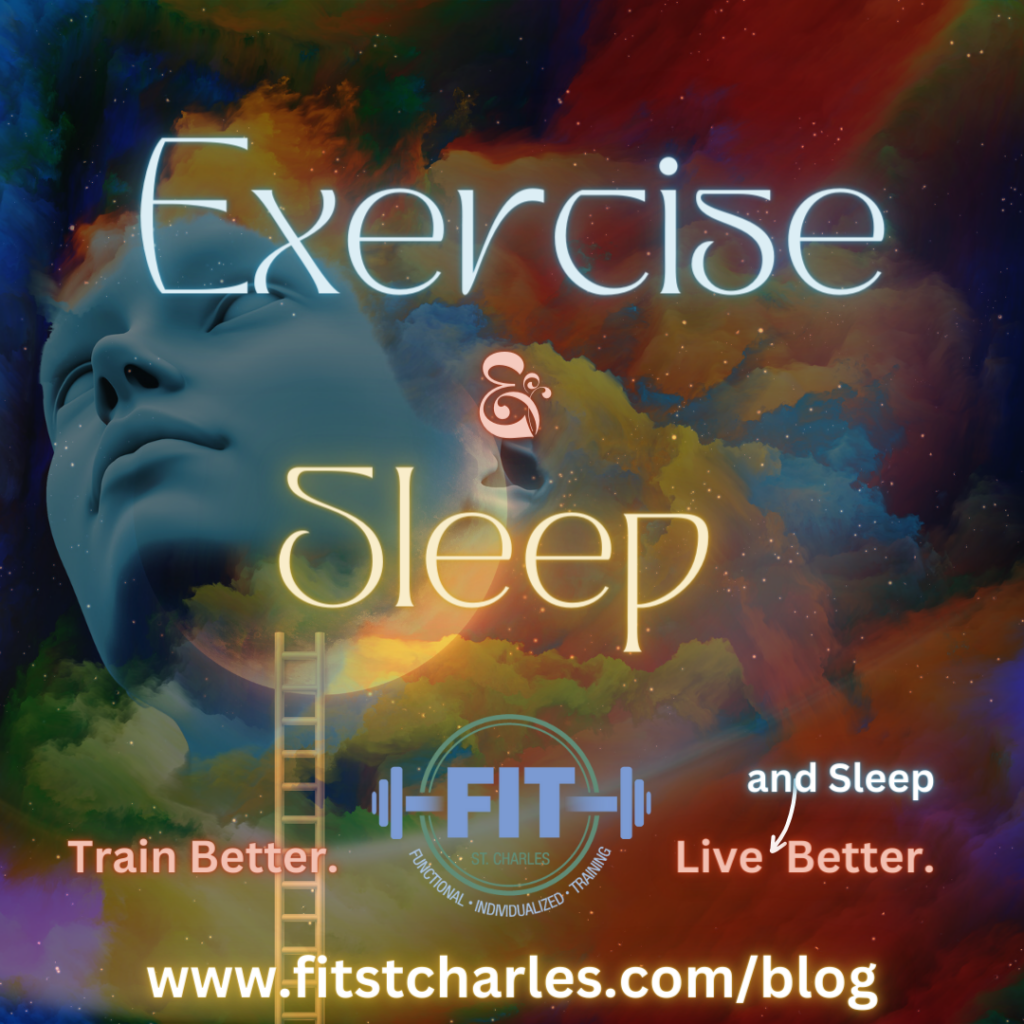
Sleep can be an uphill battle for some of us. If it’s difficult for you to fall asleep, I’m sure you’ve already heard that it’s essential to create a bedtime routine, limit screen time, and stop drinking caffeine hours before bedtime. There is another tool you can add to your sleep kit: exercise! Here’s why regular exercise allows you to fall asleep faster and get more restful sleep!
Exercise relieves stress. Not only does exercise release those “happy endorphins,” but it also decreases the amount of cortisol (the stress hormone) that your brain produces. Studies suggest that the higher intensity your workout is, the more impact it has on your cortisol levels. HIIT exercises are a great way to get in a short and intense workout that will lower your stress levels and mean better sleep!
Exercise also helps you fall asleep faster. This is because increased activity increases your body’s need for rest. According to the CDC, falling asleep more quickly correlates to the amount of strenuous activity you perform during the day. This means that after a day that includes exercise, you fall asleep more quickly than usual. Studies also show that your homeostatic sleep drive, or the pressure to fall asleep, builds with more physical activity. This pressure to fall asleep once in bed improves your sleep efficiency- in other words, it improves your ratio of time spent in bed vs. time spent asleep. You’re also less likely to wake during the middle of the night, further improving your sleep efficiency and quality of sleep.
Regarding sleep quality, vigorous exercise might enhance the deepest sleep phase- slow-wave sleep. Slow-wave sleep is the most restful phase of sleep. Roughly 95% of human growth hormone is produced during this phase. Consequently, this is when most of the wear and tear on your body gets repaired and restored. Slow-wave sleep also “resets” blood pressure, making it critical for heart health. This stage of sleep is critical and generally comes in waves of about 20-40 minutes, usually at the beginning of the night. Studies show that exercise can increase the time we remain in slow-wave sleep, meaning our body has more time to reset, repair, and rejuvenate.
More good news- the quantity and higher quality of your sleep makes it easier to exercise the next day too! Once you get in the habit of exercising regularly, you’ll sleep better, which in turn makes it easier to workout, which makes you sleep better, and the cycle goes on and on!
